Building a Sustainable Elder Care Model for the Ngäbe-Buglé Indigenous People: An Intercultural and Collaborative Approach
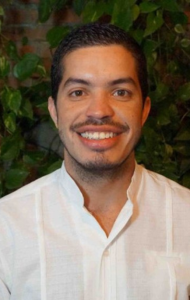 Principal Investigator
Principal Investigator
Carlos Faerron Guzmán, MD, MSc
Associate Professor of Global Health
University of Maryland, Baltimore
School of Graduate Studies
Project Description: The objective of this project is to enhance the health and well-being of the indigenous Ngäbe-Buglé elderly and aging population in La Casona, Coto Brus, Costa Rica, by establishing a culturally relevant elder care model. Honoring Dr. Pablo Ortiz's legacy, and partnering with the Interamerican Center for Global Health (CISG), faculty at the University of Costa Rica (UCR), and the NGO Hands for Health, this initiative will conduct a thorough needs assessment and establish sustainable partnerships. By analyzing current elder care practices, health challenges, and community preferences, the project aims to lay the groundwork for future research and funding applications. The assessment will examine disease prevalence, caregiving methods, and cultural perspectives and practices to ensure that the proposed solutions align with community values. The goal is to improve elder care infrastructure and services by integrating traditional knowledge with contemporary health practices. This approach seeks to enhance the daily lives of Ngäbe-Buglé elders and create a model of care that respects cultural heritage while addressing modern health challenges. This comprehensive strategy has the potential to transform elder care into an effective, respectful, and sustainable component of community health, setting a precedent for similar initiatives in other Indigenous communities. Ultimately, this project seeks to improve the quality of life for Ngäbe-Buglé elders and can contribute valuable insights to gerontology and elder care practices globally.
Longevity Secrets: Nutrition and Aging in an Emerging Long-Lived Area in Costa Rica
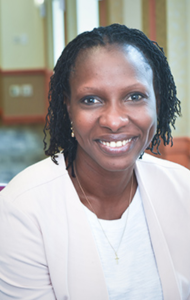 Principal Investigator:
Principal Investigator:
Martine Kirwin, DNP
Assistant Professor
University of Maryland, Baltimore
School of Nursing
Project Description: Blue Zones are regions where people live longer and healthier lives. In Costa Rica, the Nicoya Peninsula was validated as a Blue Zone in 2007, but a recent study suggests the presence of an emergent zone of high longevity in northern Costa Rica. This development grant will help build collaborative research partnerships with Costa Rica and lead to the first study examining dietary habits of long-lived individuals in this emerging Blue Zone. This study aims to determine the diversity and quality of the diet, as well as the current dietary lifestyle habits of the long-lived people in the emerging Blue Zone of northern Costa Rica. In partnership with the University of Costa Rica (UCR) professors, the Inter American Center for Global Health (CISG) and the Nicoya Peninsula Blue Zone Association, the project will conduct a comprehensive mixed methods field study, including validated dietary assessment questionnaires and interviews with local centenarians. By integrating quantitative and qualitative methods, we aim to identify key nutritional components and lifestyle factors that promote longevity. This study will not only provide scientific understanding of aging and nutrition but also provide insights for public health strategies aimed at improving longevity and quality of life in other regions like the United States particularly in Maryland.
Neighborhood Pathways to Frailty and Mortality: A Comparative Cohort Study of Older Adults in Costa Rica and the United States
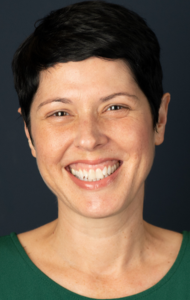 Principal Investigator:
Principal Investigator:
Amanda Lehning, PhD
Senior Associate Dean for Academic Affairs and Assistant Professor
University of Maryland
School of Social Work
Project Description: The purpose of this project is to develop and submit a R01 proposal that will examine neighborhood pathways to frailty and mortality among older adults living in Costa Rica and the United States. Frailty is a common condition in later life, and has negative consequences for older adults, their families, and health and long-term care systems. Findings from our own recent research supported by the Alicia and Yaya Initiative suggests that contextual differences between the U.S. and Costa Rica play a role in the onset of frailty, its association with mortality, and who may be most at risk. To our knowledge, however, previous studies have not examined the potential environmental pathways to mortality via frailty, nor how these pathways may differ between these two countries. The travel funds requested for this development grant will support our burgeoning collaboration between UCR and UMB and facilitate future research that can inform multi-level interventions to reduce frailty and its associated mortality.
.
2024 Seed Grant Awardees
Mitigating High Risk Medication Use in Older Adults in Costa Rica and the United States: A Comparative Approach Leveraging Mixed-Methods Evidence
Principal Investigators
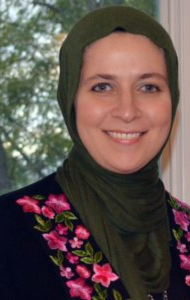 Danya Qato, PhD
Danya Qato, PhD
Associate Professor, Faculty Affiliate
University of Maryland
School of Pharmacy & School of Medicine
Sofia Segura, PhD
Professor
Universidad de Costa Rica
School of Medicine
Project Description
The project consists of two research aims. The first aim is to take advantage of already available survey data to quantify the burden of high-risk medication use and polypharmacy in older adults in Costa Rica. We intend to build an analytic file for analysis using the Costa Rican Longevity and Healthy Aging Study (CRELES, or "Costa Rica Estudio de Longevidad y Envejecimiento Saludable"). CRELES is a set of nationally representative longitudinal surveys of health. Although the data have been used widely to study population health in Costa Rica, they have yet to be leveraged to examine potentially inappropriate high-risk medication use in older adults. The second aim is to understand the determinants and lived impact of high-risk medication use and polypharmacy in nursing homes in Costa Rica by engaging in focus group discussions with personnel responsible for medication management in nursing homes in the capital city, given their pivotal and influential role in the process.
Performance of digital cognitive biomarkers: A Pilot Study of Older Adults in Costa Rica
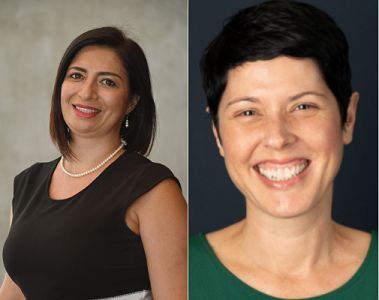
Carolina Santamaria-Ulloa, PhD
Full Professor and Researcher
Universidad de Costa Rica
Health Research Institute
Amanda Lehning, PhD
Senior Associate Dean for Academic Affairs and Assistant Professor
University of Maryland
School of Social Work
Project Description
The purpose of this project is to conduct a pilot study that will assess the performance of digital cognitive biomarkers among a subsample of 60 older adults from the Costa Rican Longevity and Healthy Aging Study Retirement Cohort (CRELES-RC), aged 60 to 84, living in the Metropolitan Area. We will collect voice recordings as digital biomarkers using a tablet device as part of the interview for data collection. We will then analyze these voice recordings using a standardized test enhanced with artificial intelligence. We will evaluate older adults to determine the frailty status of participants using the Frailty Index, and we will also use the Mini-Mental State Examination (MMSE), the Montreal Cognitive Assessment (MoCA Test), and the Geriatric Anxiety Scale (GAS). A medical interview will be conducted by a trained geriatrician who is part of the research team, to identify participants’ current cognitive status and to collect information on existing conditions that could be potential confounders.
The funds will be used to support in-person meetings in Costa Rica with our UMB counterparts, support the professional time needed for the Costa Rican team members to conduct the pilot study, and the technological equipment needed to record the voice of participants. Our collaboration between UCR and UMB has the potential to enhance the ability of researchers, including those collecting data via large nationally representative data sets, to more accurately assess for declines in cognitive functioning.